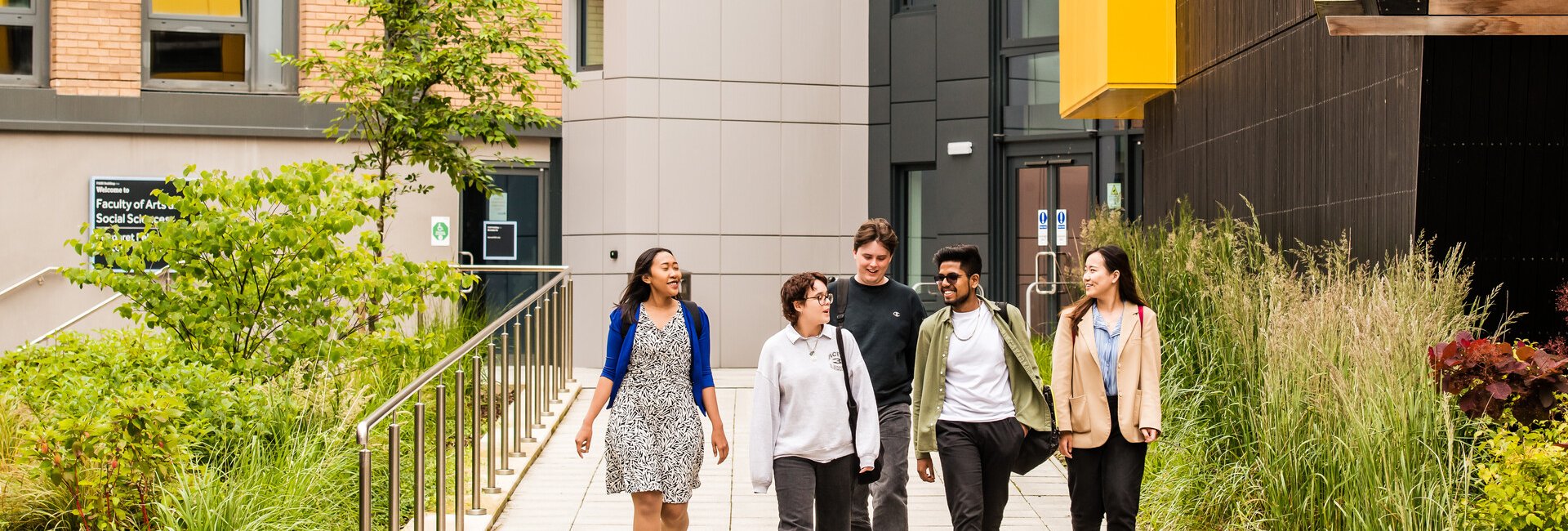Lancaster University Open Day
28 Jun 2025, 09:00
Lancaster

Why Lancaster?
Develop your critical voice through exploring literature alongside a wide range of contemporary political issues
Discuss with published literary critics and experts in politics in Britain, Europe, the Middle East and beyond in regular small-group seminars
Get involved with our student-run literary journals: Cake, Lux, Flash and Errant
Hear from visiting speakers hosted by our Politics Society and at our many literary events, on campus, online and in Lancaster’s historic Castle Quarter
Graduate with skills in analysis, communication, and persuasion that will make you stand out in the job market
Explore how both literature and politics address fundamental human questions – such as right and wrong, power, and freedom. Learn to read literature with attention to political themes and explore politics with attention to literary themes. This interdisciplinary programme offers a distinctive way to engage with the skills of analysis and critique.
A fresh approach to understanding the issues of our time
In literature you will explore many and varied social, political and environmental issues. You might, for instance, investigate themes of Englishness and Empire in Dickens, or the strangeness of power and law in Kafka.
In politics, you’ll be guided by experts who actively contribute to national and global policy debates through our in-house research centres like the Lancaster University China Centre. Grappling with a wide range of pressing contemporary issues. from the war in Ukraine to the cost of living and climate crises, you’ll build a future-facing outlook on our world.
Developing your skills and expanding your horizons
Beyond your formal studies, you’ll be encouraged to broaden your perspective through a wide range of events and travel opportunities. In literature, some modules incorporate trips to local theatres, or to the nearby Lake District; and the University offers short study trips abroad – past destinations have included New York and India.
You might also choose to pursue an internship with the Richardson Institute for Peace Studies, based in our Department of Politics, Philosophy and Religion. This could allow you to build on the analytical skills and political knowledge you develop in your studies by working on a real-world research project. Previous interns have worked on projects with think tanks, charities and non-governmental organisations (NGOs).

Learn what it's like to study at Lancaster University. From key stats to campus highlights, open days, and more - find everything you need to know here.
The following entry points are available for this course:
This section shows the range of grades students were previously accepted with - learn more. It is designed to support your research but does not guarantee whether you will or won't get a place. Admissions teams consider various factors, including interviews, subject requirements, and entrance tests. Check all course entry requirements for eligibility.
We are unable to show previous accepted grades for this course. This could be because the course is new, it's a postgraduate course, there isn't enough historical data, or the provider has opted out of sharing their entry grades data for this course - learn more.
No fee information has been provided for this course
Tuition fee status depends on a number of criteria and varies according to where in the UK you will study. For further guidance on the criteria for home or overseas tuition fees, please refer to the UKCISA website.
For information on our fees, please see www.lancaster.ac.uk/study/fees-and-funding.
Bailrigg
Lancaster
LA1 4YW
Email:ugadmissions@lancaster.ac.uk
Phone:01524 592028